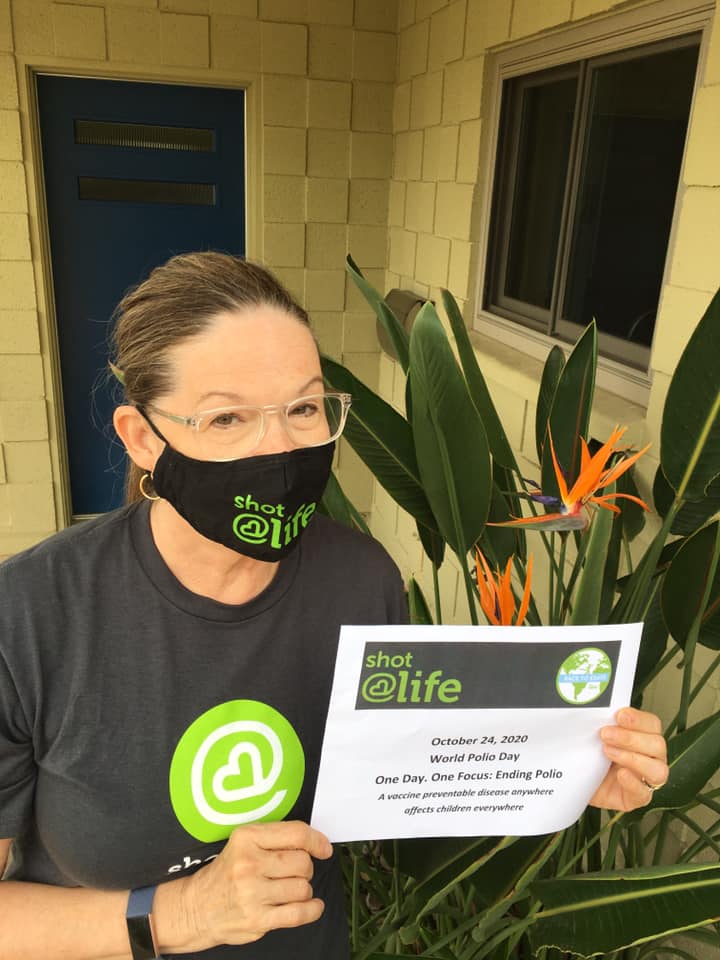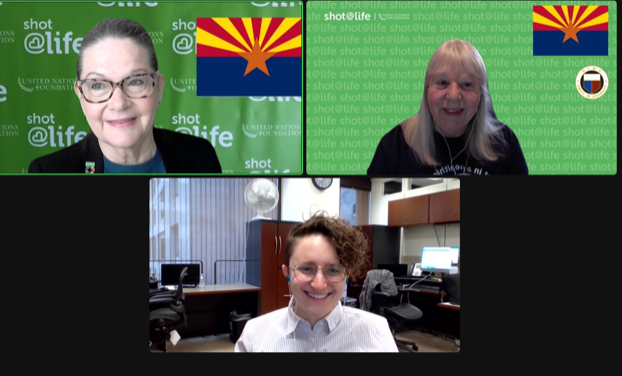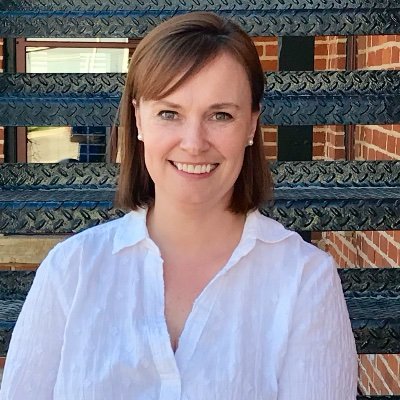Champion Spotlight: Gail Petersen Hock
Shot@Life grassroots advocate Gail Petersen Hock, DNP, APRN, PHCNS-BC, PHNA- BC, is a passionate changemaker from Arizona who is devoted to promoting immunization and protecting people from vaccine-preventable diseases. These efforts were a large part of her career as a nurse and nursing professor. Although she recently retired, she’s more devoted to her advocacy efforts than ever.

What first motivated you to become a Shot@Life Champion and advocate?
I have been involved with immunizations since 1989, starting with hospital nursing during the 1989-1990 measles epidemic, and then through school nursing and directing a mobile clinic providing pediatric services to uninsured children. Before my school nursing experience, I thought everyone’s kids were vaccinated, and I was completely unaware of the domestic barriers to vaccination. I focused my graduate work on immunization and delivery systems, and I centered my public health practice around increasing Arizona’s childhood vaccination rates.
The measles epidemic taught us that disease is “just a plane trip away.” I was drawn to Shot@Life because I wanted to increase my understanding of national and international policy. I also wanted to build stronger relationships with Arizona lawmakers. I felt well prepared for in-district visits to build personal relationships and protect vulnerable children around the globe from vaccine-preventable diseases.
How was your experience at the 2022 Champion Leadership Summit? What were some highlights?
Meeting new staff in the legislative offices is always a highlight, and the Summit has stellar speakers. I loved learning more about the mRNA vaccines from Dr. Amit Srivastava, Senior Director in Medical and Scientific Affairs at Pfizer. I also enjoyed hearing from Dr. Atul Gawande, Assistant Administrator at USAID. The Summit has served as the best policy and advocacy training that I’ve ever had.

Photo: Gail Petersen Hock meets virtually with Senator Kelly’s office during the 2022 Champion Leadership Summit.
You’ve been a Shot@Life advocate since 2015. In the past 8 years, are there any experiences that stand out as particularly memorable?
Protecting children around the world is ethically and morally the right thing to do. Having conversations with representatives from both sides of the aisle is most effective when we start where our values intersect: healthy children. It is most memorable when you get that personal hook with someone who truly listens, plus when the conversation reaches a point where our values intersect. The engagement becomes palpable. It’s great when you get to educate a staffer who is unfamiliar with Shot@Life or global vaccines.
Now, the COVID-19 pandemic has given staffers a lived experience of how contagious disease can wreak havoc on a country like the U.S., providing insight into disease impact on developing countries.
As Advocate to Vaccinate approaches, what actions are you planning on taking?
I am looking forward to (hopefully) in-person meetings during Advocate to Vaccinate this year! Senators Kelly and Sinema and Rep. Stanton’s offices are all very close to my home. Having Zoom has been great, but being in the offices and sitting with staffers is the best!
Congratulations on your recent retirement! You were a nursing professor for a long time. How did that motivate your advocacy, and what lessons from Shot@Life did you impart to your nursing students?
Shot@Life made policy real for my students. It showed them the reality of policy engagement and influence at the federal level. We have an obligation, from the local to the global level, to raise our voices. Nurses learn how significant their voices are as healthcare experts, as taxpayers, and as constituents.
You are also passionate about the prevention of cervical cancer through education and activism. Why is that so important to you?
I had cervical cancer when I was 27 with early diagnosis and successful treatment. It is important to share my experience to help give women and men “permission” to talk about cancers related to human papillomavirus (HPV) and its prevention. The HPV vaccine can prevent 90% of HPV-related cancers. In 2020, more than 600,000 women were diagnosed with cervical cancer globally, and more than 340,000 died.
Gavi, the Vaccine Alliance, created a human papillomavirus (HPV) vaccine program in 2012. Since then, 3.9 million girls have been protected against the leading cause of cervical cancer. So far, 18 countries approved for Gavi support have successfully introduced the HPV vaccine into their national immunization program. How do you feel when hearing those numbers?
The numbers give me hope. The HPV vaccine is cancer prevention. Cancer is devastating. If we can get HPV vaccines into the arms of girls, they are more likely to grow into healthy adults and have their own children. Mothers are essential to healthy families and to a country’s infrastructure. We must protect them.
Quoting Dr. Melinda Wharton, Director of the Immunization Services Division, National Center for Immunization & Respiratory Disease at the CDC, “Preventing cancer is better than treating it.” You’ll get no arguments with that statement, and it motivates my advocacy.

